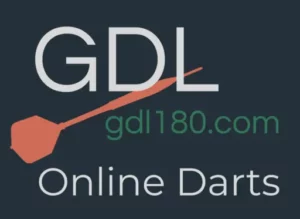GDL Playing Guidelines
Players MUST confirm their entry to each Tour event, Major/Plate, League season and League Cup event as they see fit by filling the relevant opt-in form on the website. The GDL will post by way of social media posts or by a notification on the GDL app when all events are open for entry. All entries must be completed before the advertised entry deadline.
Players will be advised that the draws/fixtures are ready to be viewed by way of social media posts or by a notification on the GDL app. For Tour events and League Cup, this will usually be within 48 hours of the entry deadline passing. For League seasons, fixtures will become available shortly before the scheduled start of the season.
Once the draw is available, players can get in touch with each other by any means of communication that are available to them, including the GDL messaging service, Twitter, Facebook etc. Contact details will be on player profiles. To view your opponent’s player profile, click on their name in the draw bracket or table. If there are no contact details, please submit a support ticket and we will give you the details and update that player profile asap.
All players will be advised of deadlines that the match must be played by and are responsible for keeping track of this for the tournaments they’ve entered. This information will be available to view on the sign up page, the relevant hub for the tournament and via email reminders sent by the GDL.
The formats of all matches will be available on the relevant hub for the tournament. If you’re playing on the GDL scorer, this will already be set up for you when you join the match. If you’re using Nakka or Lidarts, you will need to set up the match format before playing. It is both players’ responsibility to check that the match is set up correctly, even if it wasn’t you who set up the match on Nakka/Lidarts yourself.
Note that ANY match played to the incorrect format, where not enough legs have been played, will be rejected and the match will need to be played to completion. Any match played to the incorrect format, where too many legs have been played, may be rejected if the match outcome is affected.
This could lead to BOTH players timing out of Tour or League Cup matches if the match isn’t fulfilled before the deadline.
Both players must be satisfied with the quality of the view of their opponent’s board and match conditions before the match starts. Don’t start playing the match until you are happy with the match conditions. It is expected that your board view is clear and close up enough for your opponent to see the segments properly. Players must also have a microphone enabled in order for their opponent to hear them and they must not have their volume so loud that their opponent has feedback on the sound.
The match will then begin with a bull-up. The player that created the match will throw first for the bull. Only 25 and 50 count and if the players score the same, then they throw again, with the other player throwing first for the bull.
During the match, the process for each turn must be as follows:
1. Throw the darts
2. Call out score
3. Enter score
4. Retrieve darts
If there are any big trebles or winning doubles hit, be sure to make it clear that the dart is in the declared section of the board.
Either player can ask respectfully for their opponent to give a clearer view of the darts in the board and the player that threw the darts must oblige by making it clear the dart is in the section declared. Either push/pull the dart away from the wire or move the camera closer to the board.
The request to see the darts must be made before the score is entered on the scoring system being used. The throwing player must be aware that their opponent has the right to ask to see a clearer view and, as such, must not rush to take their darts out of the board and must follow the process outlined above.
Standard rules apply for winning a leg.
If the match was completed on the GDL scorer, the result is automatically sent to us. You do not have to submit the result in this case.
If the match was completed on Nakka or Lidarts, the winner must take a full screenshot of the result, including ALL stats and go to gdl180.com/results or click the results button on the hub page. Result submissions that have screenshots with incomplete stats may be rejected and you will be asked to resubmit your result. If you drew the match, please decide between you who will submit the result. It is recommended that you submit your result straight after playing.
Please note that results submitted that were played on Nakka or Lidarts may take up to 48 hours to be processed.
What happens when something goes wrong?
If you want to play a Tour or League Cup game late:
1. You need to ask your current opponent: agree a time and date to play the late match & make sure they’re happy to play the next round by the deadline if they win.
2. You need to ask the next opponent(s): that they are happy for you to play late and that they can play the winner before the next deadline. If multiple next opponents are still possible, you need to contact all of them.
3. Once you have done these 2 steps, fill in a support ticket including screenshots of the conversations/agreements.
IMPORTANT: This needs to be done before the deadline of the current round. It is recommended that both players raise a support ticket before the round deadline when an extension is required, don’t just assume that your opponent has done it for you.
If a Tour or League Cup fixture isn’t played before a deadline and no support ticket has been raised with all of the above evidence or a player withdrawing, the fixture will be timed out when the round deadline passes.
All league matches must be played withing the deadlines set for the given League phase. No league walkovers are given for any reason as it simply isn’t fair on the other players in your Division, Group or Pool that have played the games. That being said, the GDL will determine the outcome of games in the instance that a game goes unplayed which affects the outcome of prizes, ranking points or Equaliser allocation, based on evidence provided via a support ticket.
N.B. If there are instances where an unplayed game affects prizes at the end of a season, where both players involved in the running for a prize were determined to be not at fault for any games going unplayed by the GDL, a playoff game may be called for to determine the final outcome.
If any player is timed out or withdraws at any stage during a League season, the player’s results will become null and void, as if the player was not ever part of the division. This is in place so that the remaining players are compared fairly, with only results between them counting. Any stats from voided games will still be retained in your records.
In each League phase, you must play at least:
- 1 game by the end of week 2.
- 2 games by the end of week 3.
- 3 games by the end of week 4.
- All games by the end of week 5.
Extensions may be granted if you can provide evidence, via a support ticket, that you have organised matches so that you can meet the following weeks’ games played requirement. This evidence must be sent before that deadline passes. There may also be consideration where an opponent withdraws or is timed out from the League phase themselves which has meant you can’t play them.
If your opponent is unable to play you in the scheduled week, please feel free to contact and play another weeks’ opponent, to avoid falling behind.
Other consequences of being timed out or withdrawing from a League season:
- Being timed out or withdrawing in the final 7 days of a League phase will result in refusal of entry to the next Tour event, GDL Major or Plate competition. This can include players who do not finish all games in a League season.
- Being timed out or withdrawing from a League phase in the 7 days prior to the entry deadline or before the draw has been published for a Tour event, GDL Major or Plate competition up until the point that will also result in refusal of entry/withdrawal to said event.
- Being timed out or withdrawing from a League season voids entry and/or participation for the League Cup in the same given season.
- Being timed out or withdrawing from a League season results in all accrued ranking points for that League season (incl. League Cup) being removed.
- Being timed out or withdrawing from a League season may result in a deposit being required to confirm entry to subsequent League seasons, returnable upon full completion of that subsequent League season.
- Being timed out or withdrawing from a League season may result in refusal of entry to subsequent League seasons.
- If a player voluntarily leaves a League season, there is a £20 admin fee to cover the work required in removing a player’s fixtures and results.
Please show respect for your opponent before, during, and after your game. Communicate with each other. If you’re going to be late or can’t make it, tell your opponent and politely advise of the situation. A minimum of 1 hour’s notice is required to cancel a match unless there is a specific urgent reason to do so. There are very few reasons for it to be considered acceptable to not contact your opponent in advance should anything change.
Players who experience an opponent not turning up for an arranged match without sufficient notice, or difficulties arranging a match in the first place, should raise a support ticket as soon as possible. We have a support team that are ready to help you out, but we can’t do anything if we don’t know about it.
The GDL track, trend and take further action in all instances where this occurs and, therefore, it is very important that all instances are reported. We have a support team available to help you out, but we can only do that if we know about it. Multiple instances of this happening could lead to various sanctions depending on the frequency of the instances. This could involve, but isn’t limited to, a player being withdrawn from the competition or being removed from the GDL entirely.
N.B. The GDL will not disclose any of these disciplinary actions taken with anyone other than the player themself. Therefore, if you have raised a support ticket about an instance of this manner but the GDL don’t disclose to you the outcome, this does not mean that no other action was taken or will be if further similar incidents occur with the same player.
The GDL may ask you to try to re-arrange a match in certain circumstances. This is because there is no fairer way to determine points and prizes than to play all of the scheduled games and/or because the opponent made a genuine mistake that is out of character. It is appreciated that, if asked to, you co-operate and try to re-organise in these circumstances, whilst the GDL continue to track, trend and take further actions, where required.
Multiple instances of being disrespectful will result in being removed from the GDL without refund.
It’s all about respect. We’re all decent adults in the GDL, so please respect each other.
If you are not happy with the board view of an opponent before a game begins, you have the right to A) ask for a better view and B) if the opponent refuses or is unable to provide a better view, refuse to play the game.
If there is too much noise going on in your opinion, you have the right to A) ask your opponent to reduce the noise, turn the music down etc. or B) refuse to play the game until things are to your liking. We hope and believe, however, that this type of thing will be rare within the GDL. Be aware that some people might only have their living room to put their board up, for example, so a little bit of background noise can’t be helped sometimes.
Having said this, it is important that you keep your noise down as much as possible. No loud music in the background, no talking on your opponent’s throw, no banging and crashing about.
If there are any issues relating to board view or match conditions, it is important that you raise a support ticket before you play the game, or if mid-game, you stop playing as soon as possible.
There is little that the GDL can do after a game has been played, in terms of the outcome of the game, if you only retrospectively raise the issue via support ticket. All evidence is appreciated when investigating issues with board view or match conditions, so please provide screenshots or video, where possible.
The GDL investigates all reports of poor match conditions thoroughly and often results in a new board view review being conducted. If the GDL request to review your board view, you will not be eligible to play any GDL games until that has been conducted and your board view accepted. Any games you play during this period are likely to be voided.
For reference, below are some examples of ‘good’ board views.
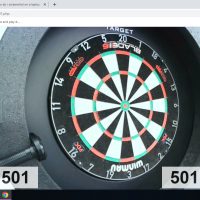
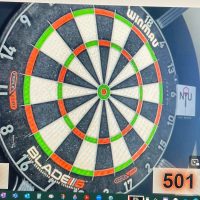
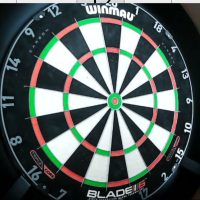
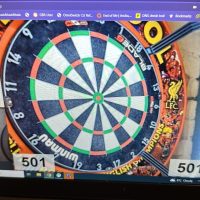
We hope there are no issues between players but if there are, you must raise a support ticket.
We are all adults here and most issues can be resolved with mediation.
Any decision made by the GDL is full and final.
DO NOT GO SHOUTING ON SOCIALS ABOUT ISSUES YOU HAVE HAD before trying to work it out between us. Let’s sort it out sensibly.
ANY PLAYER FOUND TO BE CHEATING WILL NOT ONLY BE BANNED FROM ALL GDL COMPETITIONS FOR LIFE, BUT THEIR NAME AND DETAILS WILL BE SHARED AROUND TO OTHER DARTING ORGANISATIONS. THIS INCLUDES ATTEMPTING TO FALSIFY RESULTS.
Use of illegal substances is strictly prohibited. Anyone found to be using them during a GDL match or admitting to using them before the game to enhance performance will be given an immediate ban from all GDL competitions indefinitely.
